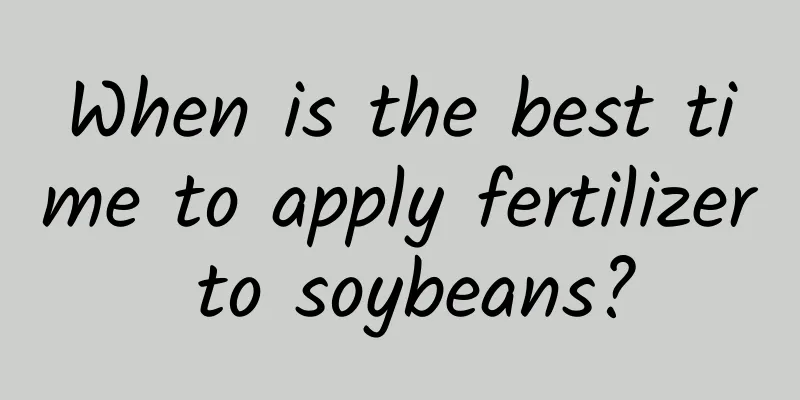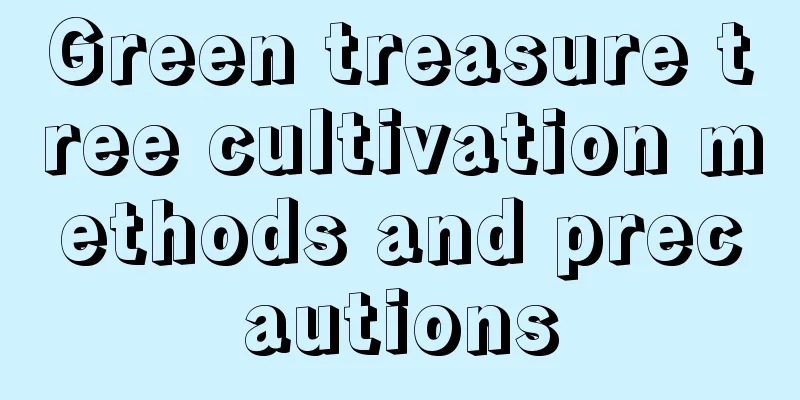When is the best time to apply fertilizer to soybeans?

Soybean topdressing timeSoybean's demand for fertilizers varies greatly at different growth stages. Generally, the demand for nutrients is highest from the flowering stage to the grain filling stage, which is also the best time to apply fertilizer. Pumpkin topdressing fertilizerDuring the fertilization process, soybeans should focus on phosphorus supplementation, and nitrogen and potassium should be appropriately supplemented. When planting soybeans, it is necessary to use base fertilizer well, applying 30-40 kg of phosphorus fertilizer and 50-60 kg of urea per mu; after entering the flowering period, boric acid or borax should also be sprayed to achieve the effect of increasing flowers and fertilizers. Methods of topdressing for high yield of soybeanSoybean seedling fertilizer: The root nodules of soybean seedlings are in the formation stage and have no nitrogen fixation ability. If the nitrogen nutrition cannot keep up, it will affect the early growth of seedlings. Early topdressing can promote the growth of roots and leaves. Generally speaking, when the compound leaves unfold, the yield per mu can reach 4-6 kg. Applying an appropriate amount of phosphorus fertilizer in the seedling stage is conducive to the formation and development of soybean root nodules. The application amount of superphosphate can reach 8-10 kg. Soybean flower fertilizer: The flowering and pod stage of soybeans is the peak period for fertilizer absorption. In the early flowering stage, an appropriate amount of nitrogen fertilizer can be applied to reduce the shedding of flowers and pods, and the yield per mu can be increased by 15-20%. Generally, 5-8 kg of urea is applied per mu, and a pit is dug 5-7 cm away from the bean root, and then covered in the ground. If the soil is fertile and the plants grow robustly, the effect of nitrogen topdressing is small. When the amount of phosphorus applied as basal fertilizer is insufficient, 7-10 kg of urea can be applied per mu. Granulating fertilizer: After soybeans enter the pod-setting and grain-filling stage, the nitrogen-fixing ability of rhizobia and the vitality of the root system gradually decrease, and the ability to absorb fertilizer decreases. At this time, foliar spraying should be used to supplement nutrients to reduce pod drop. Generally, 50 kg of 0.3% potassium dihydrogen phosphate is used per mu, and it should be sprayed evenly on the leaves after 4 pm to the evening. Spray 2-3 times in a row. If denitrification occurs, 0.5 kg of urea can be added per mu for mixed spraying. |
<<: When is the best time to fertilize pumpkin?
>>: When is the best time to plant plums?
Recommend
These two types of tree bark are the most suitable for growing flowers. They grow wildly in pots and flower buds pop out!
Use pine bark to pad the bottom of the pot to pre...
Cultivation methods and precautions of Tiger Pilan
1. Soil The most important thing about the soil f...
Grape Management Techniques in January
Grapes prefer warm environments and have weak res...
Is the yellow cicada poisonous?
Yellow cicada is poisonous If you look up the &qu...
Why do gardenias drop their buds?
1. The soil in the pot is too wet It prefers a mo...
Can I still grow succulents in winter?
The first factor: temperature If you want to grow...
Huang Qiuying's breeding methods and precautions
Growth habit This flower likes light. If there is...
The growing environment and local conditions of Codonopsis pilosula
Codonopsis pilosula growth environment and condit...
This is the kind of simple life that Chinese people want most!
Wherever there are Chinese people, there is the s...
Can the yellowing leaves of the golden diamond be cut off?
1. Can be trimmed When the leaves of the golden d...
What flowers are suitable for growing in Shannan? What are the city flowers and trees?
1. Climate characteristics of Shannan Shannan'...
How many years does it take for an apple tree to bear fruit?
Introduction to Planting Apple Trees Apples are h...
How to make Gloxinia bloom
1. Matrix If you want it to bloom out of the pot,...
Is the fig tree poisonous?
Is it toxic? Friends who are asked whether it is ...
What to do if the leaves of the fortune tree are curled
The leaves of the money tree are curled - Sunshin...









